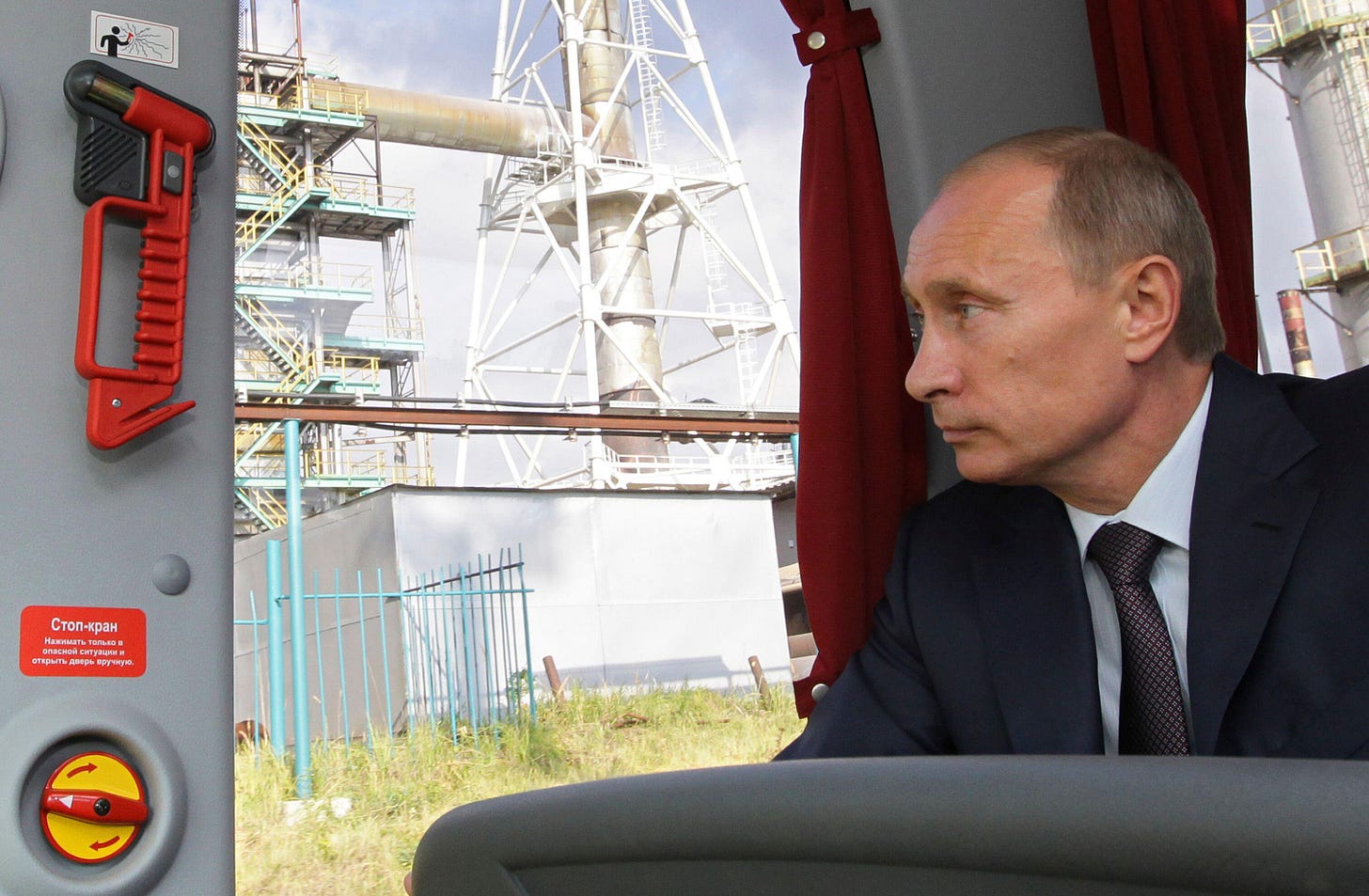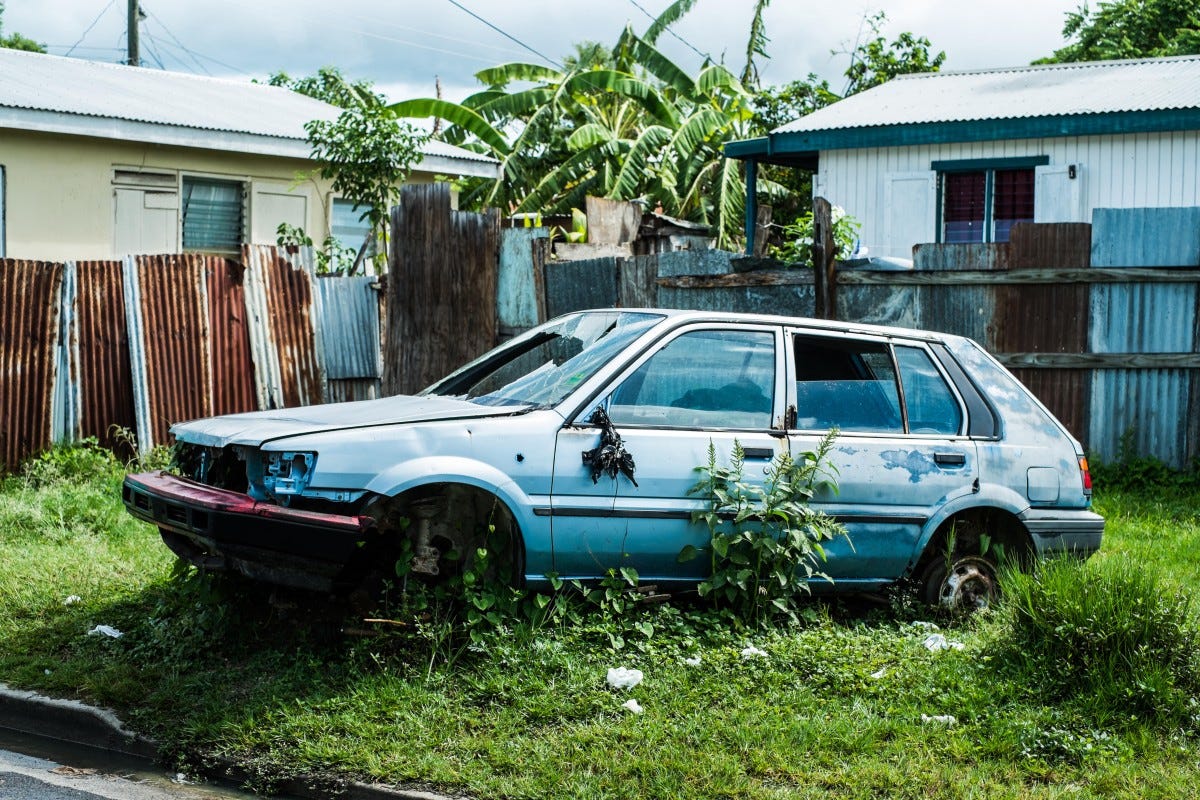
Discover more from REACTION
The dangerously flawed logic of an EU return to Russian gas
Those arguing that reopening flows of Russian gas into Europe would persuade Putin to stick to a ceasefire are failing to learn the lessons of history.
In a move that is already provoking a backlash, a number of EU officials have raised the idea of reopening flows of Russian gas into Europe, as part of a potential settlement to end the war in Ukraine.
According to three officials who spoke to The FT, those backing a return to buying Russian gas - which includes some German and Hungarian officials - argue that, aside from reducing Europe’s high energy costs, the move would encourage Moscow to the negotiating table, and give both sides a reason to implement and maintain a ceasefire.
Other Brussels diplomats involved in the preliminary talks are said to be furious at the mere suggestion of a return to Russian energy. “It’s madness … How stupid could we be to even think about that as an option?”, one told The FT, speaking anonymously.
Polish officials will no doubt fall into this latter category. Earlier this week, Poland’s President Andrzej Duda, insisted that pipelines running from Russia to Europe should be permanently “dismantled”.
Prior to Putin’s full-scale invasion of Ukraine in 2022, over 40 per cent of Europe’s gas supplies came from Russia. Over the past three years, European countries, Britain included, have made big efforts to wean themselves off Russian energy.
In 2024, gas from Russia made up around 10 per cent of the EU’s total supply and that figure has halved since January, when a contract still permitting Russian gas flows to reach Europe through a Ukrainian pipeline ended.
That Hungarians are amongst the EU officials advocating for a return to Russian energy is entirely unsurprisngly. Hungary’s leader, Viktor Orbán, alongside fellow Putin-friendly Slovakian PM Robert Fico, have been critical of the bloc’s sanctions on Russia from day one.
As for alleged German support, this is surprising insofar as Berlin is a key ally to Ukraine but less so when we remember that divesting from Russian energy has dealt an especially heavy blow to the German economy. On the eve of the war in Ukraine, Moscow provided a third of Germany’s oil, around half its coal imports, and more than half of its gas.
Germany's increasingly popular hard-right AfD party has already suggested that the Nord Stream gas pipelines - which were built by Russia's state-owned gas giant Gazprom and run between Russia and Germany - should resume operations.
The cost of European energy sky-rocketed following Putin’s full-scale invasion of Ukraine and, while it has recovered somewhat since, it has never returned to pre-war prices.
While the continent has largely shaken off its dependence on Russian gas, it has paid a price for doing so. Europe is now heavily dependent on liquefied natural gas (LNG) from the US - which has acted as both a saviour and a costly alternative.
It’s expensive for several reasons: the complex process of liquefying the gas, the high cost of shipping it across oceans in specialised tankers and the fierce competition for supplies. European nations now have to outbid countries across the world, including China and India, to guarantee these vital shipments.
French President Emmanuel Macron has lashed out at the US for offering Europe LNG prices three to four times higher than prices on the American domestic market.
Trump, meanwhile, has threatened the EU with tariffs unless it buys more LNG from America. Meaning the bloc’s proposed return to Russian energy is an area in which he and his European ally Orban may find themselves at loggerheads.
While LNG is a costly alternative, any return to Russian gas dependency will cost Europe its energy security.
Any EU officials arguing that reopening flows of Russian gas into Europe would persuade Putin to stick to a ceasefire appear to be using the same naive logic that Germans relied on in the years and months leading up to February 2022.
Right up until Putin’s full-scale invasion, Berlin pressed ahead with its plans to build the Nord Stream 2 pipeline, designed to carry natural gas directly from Russia to northern Germany. The German gamble was that Putin wouldn’t invade Ukraine because Europe and Russia were locked into mutual dependence, with Europe needing gas and Russia containing no infrastructure to sell that gas elsewhere. Berlin ignored concerns raised by countries including Poland and Ukraine that the pipeline would further enable Putin to use natural gas as a weapon.
Nord Stream 1 was shut down following the outbreak of war in 2022, and Putin attacked Ukraine before Nord Stream 2 even went into operation, turning the entire project into a billion-dollar financial black hole.
German - and other EU - diplomats backing a return to Russian energy are failing to learn the lessons of history.
Caitlin Allen
Deputy Editor
ON REACTION TODAY
Gerald Warner
Davos man, 1971-2025: an obituary
Anthony Peters
A practical way Britain could help Caribbean islands
ALSO KNOW
No survivors after US plane crash – No-one is believed to have survived after an American Airlines flight, carrying 64 people, collided with a military helicopter above the Potomac River near Ronald Reagan National Airport in Washington DC. Emergency services have been making rescue efforts to recover the debris and 28 bodies have been found so far. President Trump also questioned why the helicopter didn’t “go up or down, or turn.”
Further hostages released from Gaza – Eight more hostages have been released by Hamas in Gaza, including five Thai nationals and three Israelis, in return for 110 Palestinian prisoners, who were freed today from Israel's Ofer prison, after a delay. According to an Israeli spokesperson, eight of the remaining hostages set to be released by Hamas are dead.
Quran burner shot dead – Police confirmed today that Salwan Momika, an Iraqi who burned the Quran in protests in Sweden, was shot dead yesterday in the capital city of Stockholm. Five people were arrested last night on suspicion of murder. Prime Minister Ulf Kristersson said there was “obviously a risk that there were links to foreign powers.” The anti-Islam protests carried by Monika sparked outrage in many majority-Muslim countries.
Coffee hits record price - Coffee prices have surged to record highs, above $3.60 per pound of arabica beans, amid concerns in Brazil, which produces nearly half the world’s arabica beans, over its upcoming harvest and slow trades.
FIVE THINGS
Xi Jinping’s alarming blueprint for the future. Charles Parton in The Spectator.
Can Netanyahu survive without war? Amos Harel in Foreign Affairs.
Why Meta is paying $25 million to settle a Trump lawsuit. Michael Scherer in The Atlantic.
The FT on why Reeves’s growth strategy depends on selling positive changes
Kash Patel’s political persecution fantasies. Tess Owen in The New Yorker.














